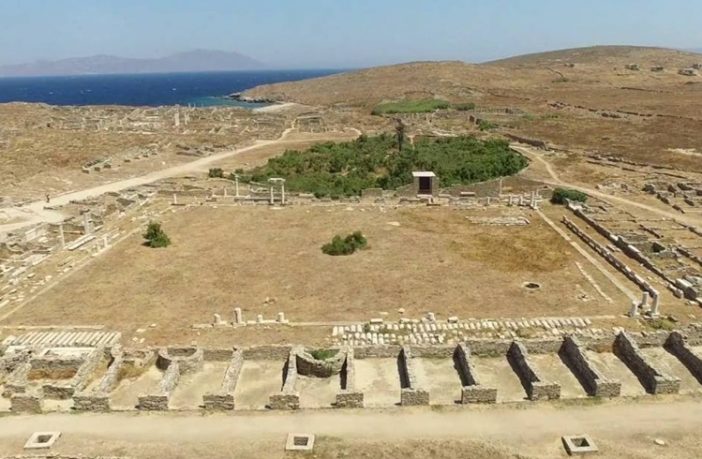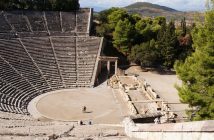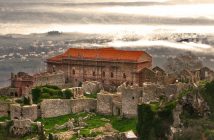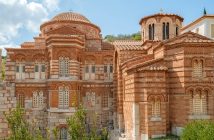According to Greek mythology, Apollo was born on this tiny island in the Cyclades archipelago. Apollo’s sanctuary attracted pilgrims from all over Greece and Delos was a prosperous trading port. The island bears traces of the succeeding civilizations in the Aegean world, from the 3rd millennium B.C. to the palaeochristian era. The archaeological site is exceptionally extensive and rich and conveys the image of a great cosmopolitan Mediterranean port.
The island was first settled in the third millennium BC. The Apollonian sanctuary, established at least since the 9th century BC, reached the peak of its glory during the Archaic and Classical period, when it acquired its Pan-Hellenic character. After 167 BC, as a result of the declaration of Delos as a free port, all the commercial activity of the eastern Mediterranean was concentrated on the isle. Rich merchants, bankers and ship-owners from all over the world settled there, attracting many builders, artists and craftsmen, who built for them luxurious houses, richly decorated with frescoes and mosaic floors.
The small island became soon the maximum emporium totius orbis terrarium (S. P. Festus, 2nd century AD) – the greatest commercial centre of the whole world. The prosperity of the island and the friendly relations with the Romans were the main cause of its destruction. Delos was attacked and looted twice: in 88 BC by Mithridates, the King of Pontus, an enemy of the Romans, and later, in 69 BC, by the pirates of Athenodorus, an ally of Mithridates. Since then, the island fell rapidly into decline and was gradually abandoned. Captured after its abandonment successively by the Byzantines, Slavs, Saracens, the Venetians, the Knights of St. John and the Ottomans, Delos was turned into a quarry site with its temple columns burnt for lime, and its houses left in ruins.
Delos, the Holy Island of Ancient Greece in the Cyclades Islands of Greece, was included in the World Heritage list by UNESCO in 1990.




